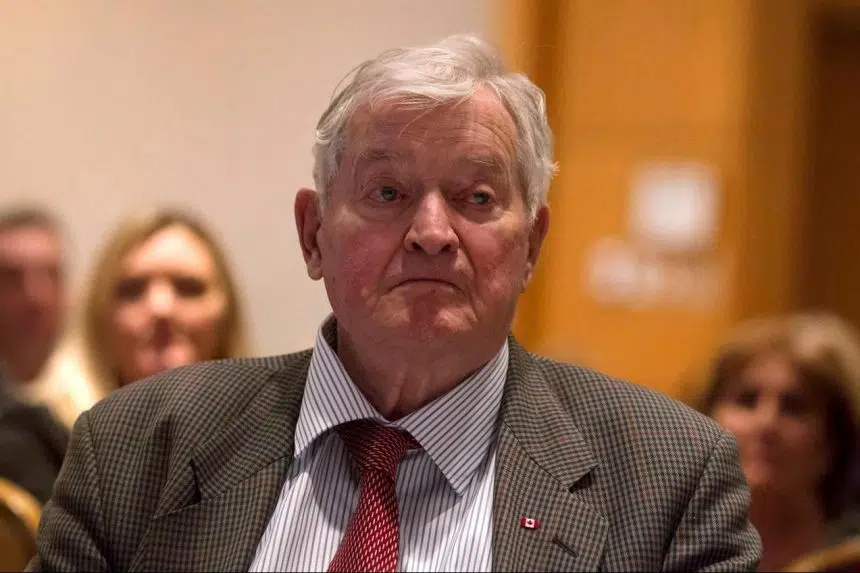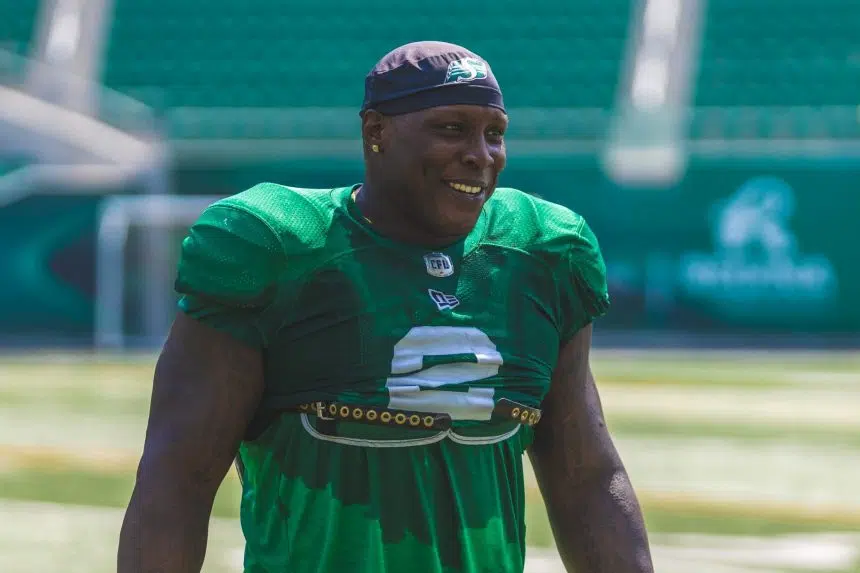TORONTO – Former prime minister John Turner was eulogized at a state funeral on Tuesday as a gifted politician with a strong social conscience who spent decades serving his fellow Canadians.
An invited list of 170 mourners – among them the current prime minister and Turner’s closest family – were on hand at St. Michael’s Cathedral Basilica for the televised service ahead of a private interment.
The U.K.-born Turner, Canada’s 17th prime minister, died peacefully at home on Sept. 19, his family said. He was 91.
“Today, more than ever, we need more people like John,” Prime Minister Justin Trudeau told mourners. “His legacy calls on us not to wait for change to happen but to stand up and build a better country for everyone.”
While the recently renovated cathedral has a capacity for 1,600 people, concerns over the spread of COVID-19 prompted organizers to limit the guest list. Many of those in attendance wore black face masks and were spaced out among the pews to maintain physical distance.
As sunlight filtered through the stained-glass windows, Turner’s daughter Elizabeth Turner praised her father as a dedicated politician and public servant who, despite the demands of public life, never failed to make time for his family.
“John Turner believed in taking the high road,” she said. “He handled himself with great grace and dignity and he always maintained his sense of humour.”
Once dubbed “Canada’s Kennedy” when he first arrived in Ottawa in the 1960s, the athletic John Turner ultimately represented three provinces as a Liberal member of Parliament. He served as solicitor general and justice and finance minister in various cabinets before his brief, 79-day stint as prime minister in 1984.
Born in 1929 in England, John Napier Wyndham Turner moved to Canada in 1932 after the early death of his father. An Olympic-calibre track star, he would go on to study law.
Turner first entered politics in 1962 when he won a seat in the Quebec riding of St-Laurent-St-Georges.
“Democracy does not happen by accident,” his family later cited him as saying repeatedly.
In 1965, then-prime minister Lester Pearson named Turner to cabinet, two years before Trudeau’s father Pierre Trudeau and fellow prime minister-to-be Jean Chretien landed cabinet posts.
Turner ran to succeed Pearson in 1968, but lost to Pierre Trudeau, who appointed him as justice minister, a post he used to help create the Federal Court.
He defended martial law and the suspension of civil liberties during the October Crisis of 1970 but also the decriminalization of homosexuality and abortion in the 1960s.
He once saved then-Opposition leader John Diefenbaker from drowning during a vacation in Barbados.
Turner married his wife, Geills McCrae Kilgour, great-niece of Col. John McCrae who wrote “In Flanders Fields,” in 1963. The couple had a daughter, Elizabeth, and three sons, Michael, David and Andrew.
After leaving politics in 1976, the passionate outdoorsman spent nearly a decade as a corporate lawyer on Bay Street before returning to politics after Pierre Trudeau resigned. Turner won the 1984 Liberal leadership race over Chretien in a bitterly divided contest.
Turner, who opposed free trade with the U.S., called an election nine days after he was sworn into office as prime minister. The poorly prepared and divided party proved no match for Brian Mulroney and his Progressive Conservatives.
Turner resigned as party leader in 1990 and left politics three years later, joining a Toronto law firm.
Despite declining health, he was a mainstay at many Liberal events. He gave speeches reminding the party of its golden years, sprinkled with wild stories about life on the political trail.
Colin Perkel, The Canadian Press







